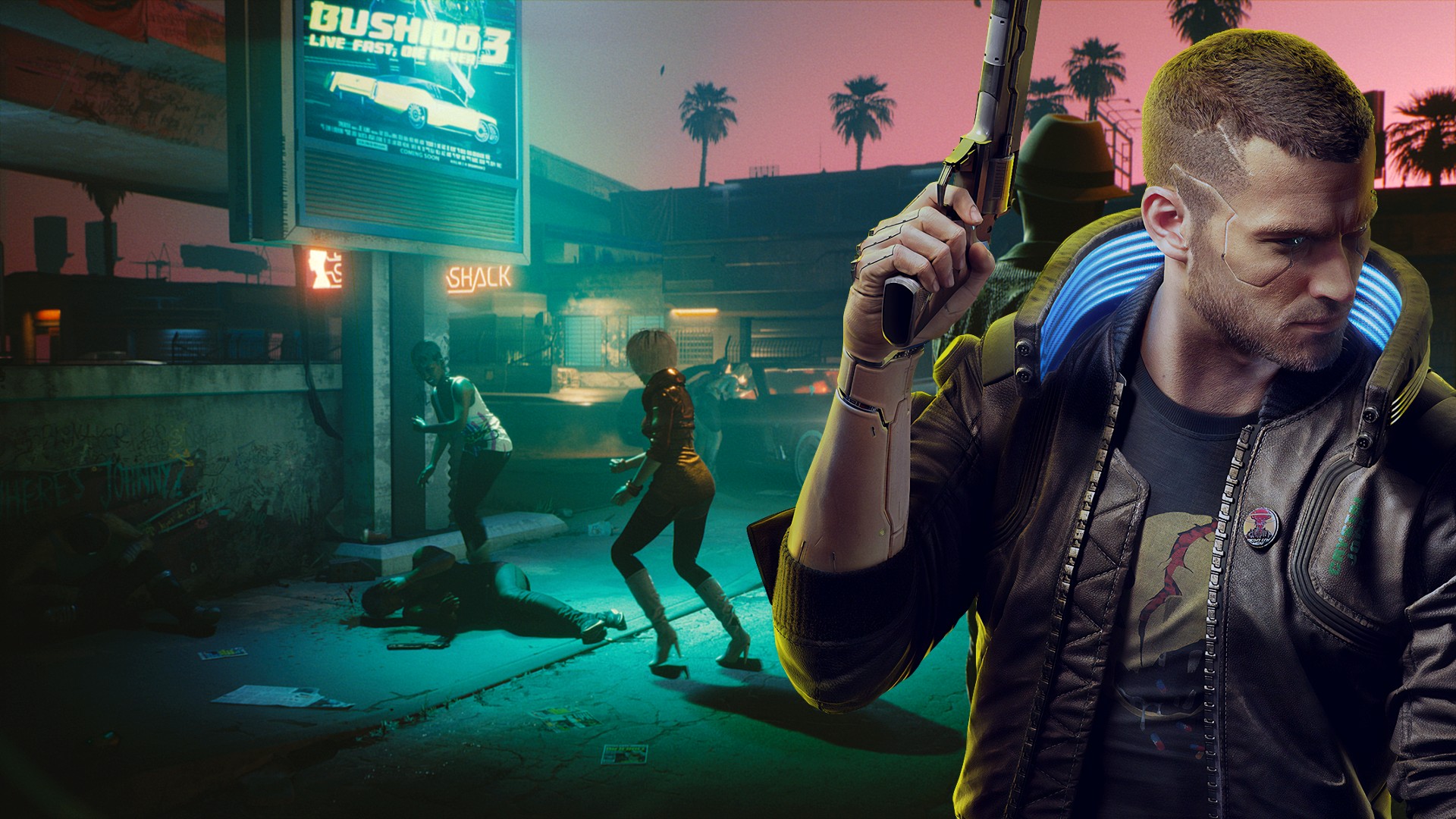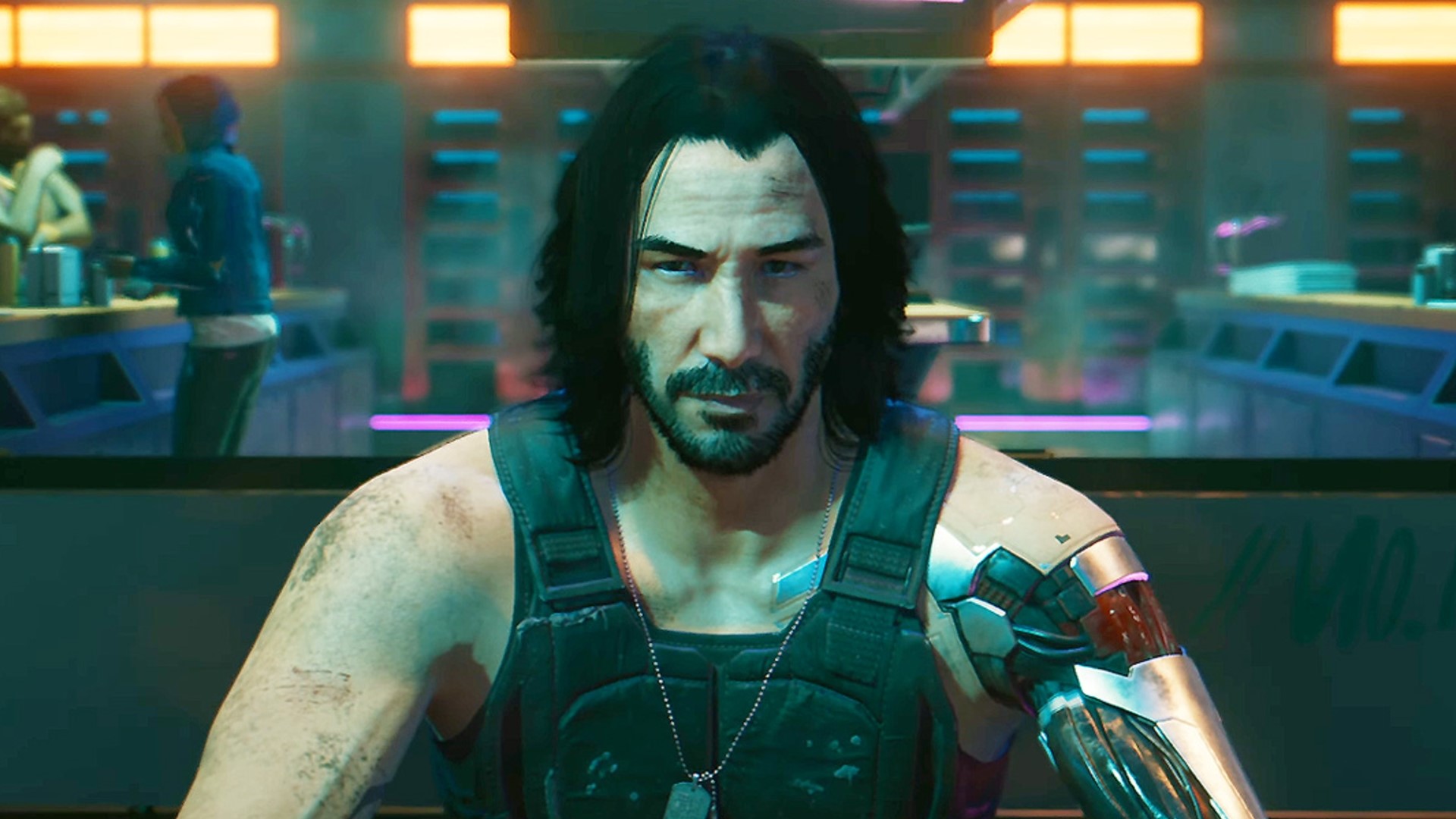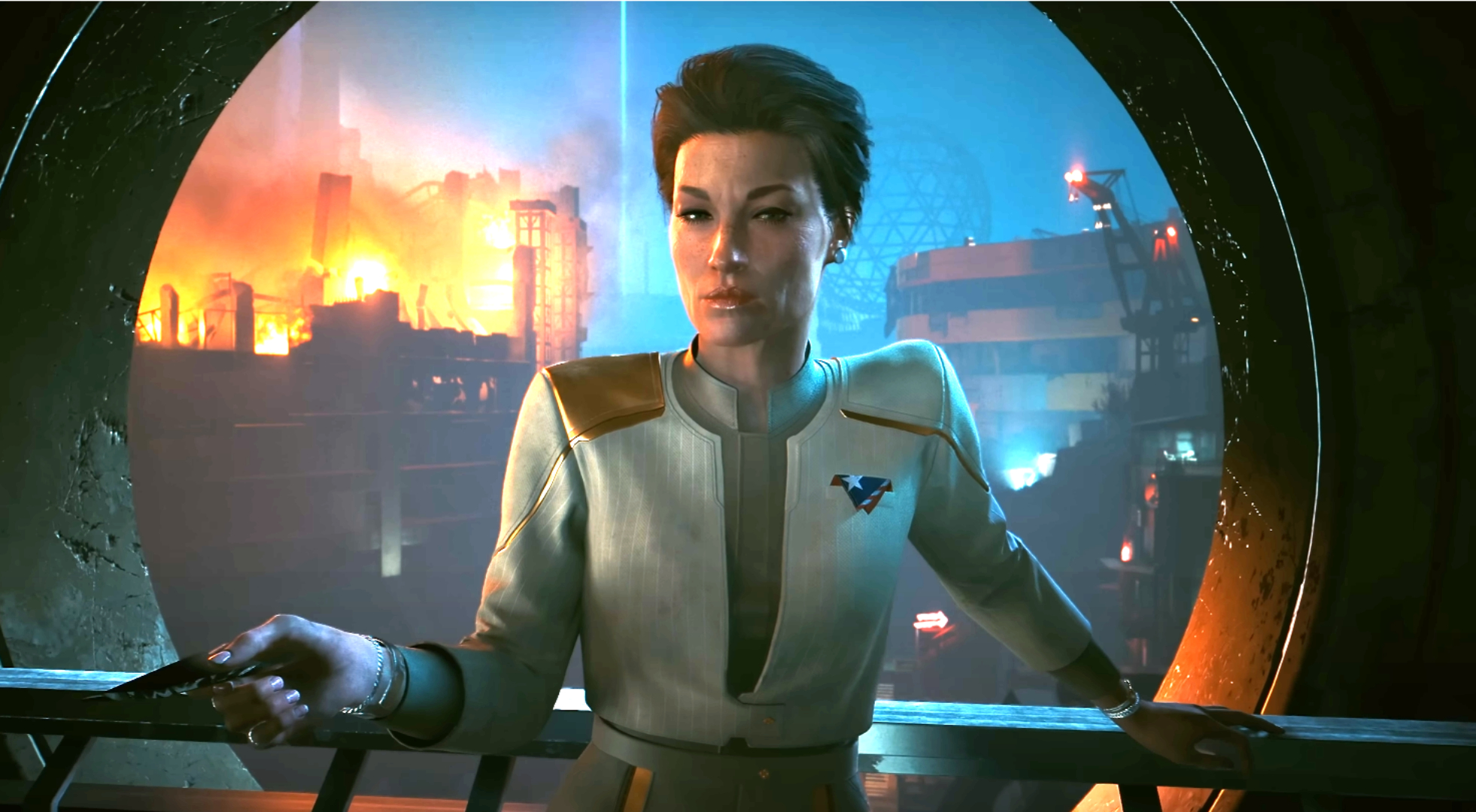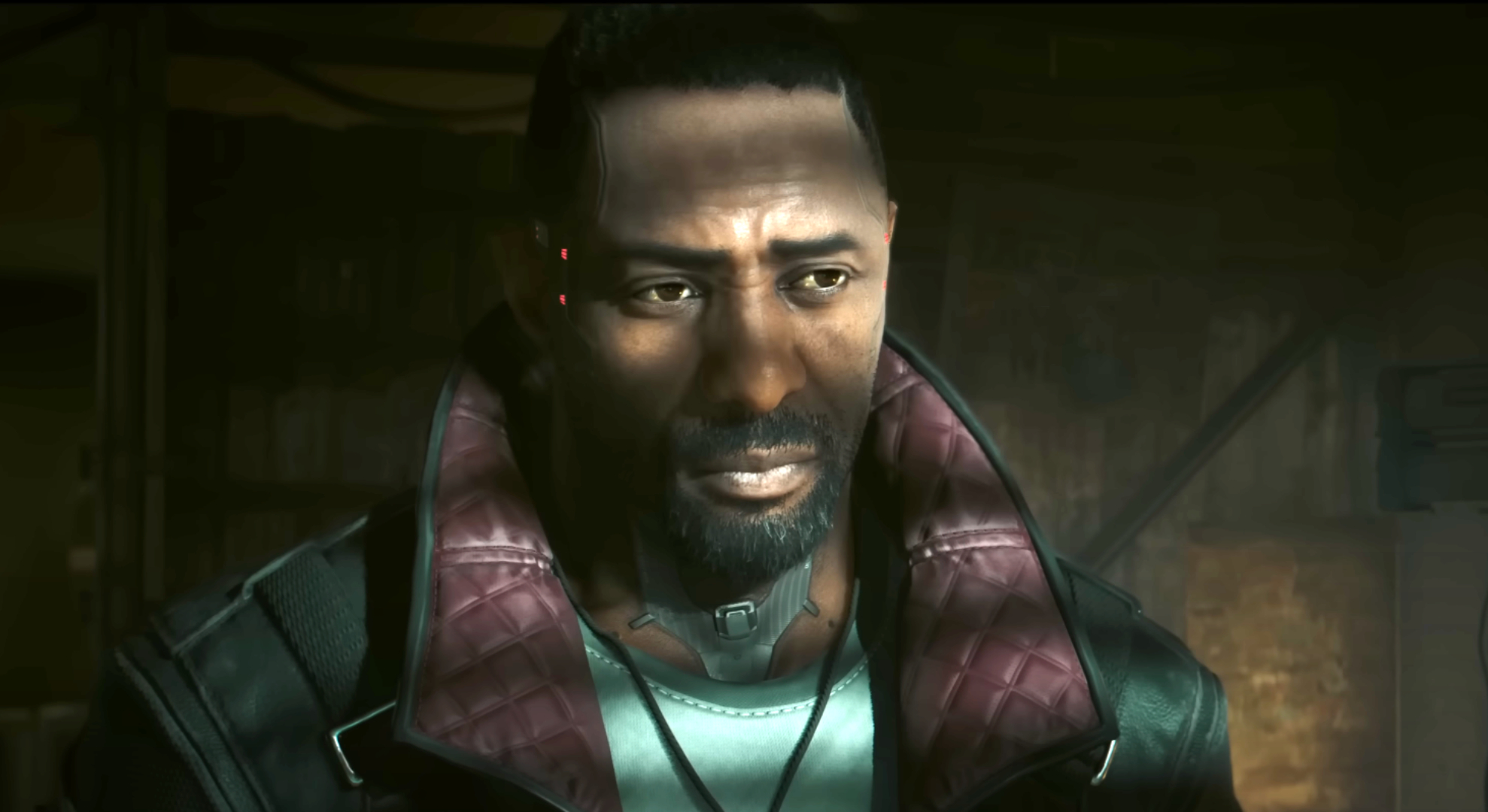Cyberpunk 2077 needs to be more "punk" in its upcoming expansion
Punked

Sign up for breaking news, reviews, opinion, top tech deals, and more.
You are now subscribed
Your newsletter sign-up was successful
Johnny Silverhand is a lot. This anti-establishment rocker, played by Keanu Reeves, rides shotgun in the brain of Cyberpunk 2077’s protagonist, offering color commentary on many of V’s decisions throughout the game’s storyline.
Silverhand is, in his totality, a cyberpunk, and absolutely essential. Despite his fame, he rejects corporate music deals and cushy mansions in favor of a life of countercultural terrorism. In severe contrast to his ex-colleague Kerry Eurodyne, Johnny would rather die than embrace the corporate bosom.
Spoilers ahead for Cyberpunk 2077
By the end of the game’s first act, we learn that Johnny gets his wish. The Arasaka corporation kidnaps and uses him as a prototype for their gruesome experiments, copying his personality onto a cutting-edge biochip while killing the original. Johnny died horribly, but he never gave in.
Johnny Silverhand embodies the spirit of the cyberpunk genre more wholly and completely than Cyberpunk 2077 itself. He is irritable, cynical, and violent but equally devoted to ideas of self-determination, free expression, and community. He is profoundly anti-authoritarian and anti-capitalist, willing to countenance extreme measures in his war against Night City’s corporate interests.
Though our protagonist, V, can follow in his footsteps if their player chooses, Cyberpunk 2077 occasionally falls short when delivering on the political commentary and noble rebellion that make its namesake genre a reality.
Genre Savvy

Many see the birth of the modern cyberpunk genre as concurrent with the release of William Gibson’s seminal sci-fi novel Neuromancer in 1984 and Ridley Scott’s 1982 film Blade Runner. Both use the layer of abstraction offered by their futuristic settings to confront and challenge troubling aspects of our current reality.
Sign up for breaking news, reviews, opinion, top tech deals, and more.
Blade Runner follows a group of Replicants who escape from their indentured servitude. In contrast, Neuromancer follows an ex-hacker whose defiance of his employer left him disabled and unable to access virtual reality.
Both materials are explicitly echoed in Cyberpunk 2077, speaking to the title’s genre pedigree. In the Delamain side quests, V must deal with the consequences of AI fracturing as he begins to question whether or not it’s worth being more than just a cab driver. CD Projekt Red’s sci-fi opus also follows in the footsteps of Neuromancer in its analysis of the singularity – the theoretical point where human and artificial intelligence becomes indistinguishable. Alt Cunningham, Johnny’s old flame, does precisely this, transcending her mortal body and becoming a profoundly powerful AI, not unlike the eponymous Neuromancer in Gibson’s book.
CD Projekt Red’s sci-fi opus follows in the footsteps of Neuromancer
Fast-forward to the present day, and Cyberpunk 2077’s own anime spin-off series Cyberpunk: Edgerunners does an excellent job of depicting anti-authoritarian struggles against monolithic megacorps. Without spoiling too much, the protagonist, David, has a trajectory not dissimilar to Johnny’s; his struggle against corporate power brimming with cynical, yet noble, rebelliousness.
Cybernarc

However, what is disappointing is that, while promising in places, Cyberpunk 2077 doesn’t go the whole hog in its embodiment of the genre. Throughout the game, V can undertake side missions for the police, bringing in perpetrators for rewards. The action RPG never questions the ethics of this practice, encouraging you to carry out the Night City Police Department’s dirty work from day one.
It is undoubtedly in keeping with the cynicism of the Cyberpunk genre to have the police outsource its work to freelance vigilantes. Still, the fact that Cyberpunk 2077 doesn’t invite audiences to question this practice seems distinctly at odds with the conventions of the genre.
Cyberpunk 2077 sometimes feels at odds with the conventions of its own genre.
The same is seen in one of the endings wherein V can choose to surrender to the Arasaka corporation, carrying out a dangerous mission for the megacorp. Should they succeed, the evil corporation itself will give V a chance to upload their consciousness to Asasaka’s cloud database in the hope that, one day, they might be brought back to life.
Narratively, it’s a bit of a damp squib and is considered by many to be the “bad” ending, but having the option to sell out does add a disquieting aftertaste to Cyberpunk 2077’s menu of conclusions.
Liberty and justice for none

While CD Projekt Red’s open-world game is admirable in its commitment to the themes and motifs of its genre, it’s clear that there’s room for improvement. Cyberpunk 2077’s upcoming expansion, Phantom Liberty, is uniquely positioned to live up to the legacy of cyberpunk media in a way the core game didn’t.
Not only has CD Projekt Red learned valuable lessons from the rocky road of Cyberpunk 2077’s development, but the expansion is set to deal with subject matter pertinent to the anti-capitalist skepticism that beats at the heart of the genre.
Though details are slim, we know that Phantom Liberty will heavily involve the government of the New United States of America, emphasizing espionage and mystery solving, alongside government agent Solomon Reed, played by Idris Elba.
It’s a golden opportunity for CD Projekt Red to tell an affecting story
This more cerebral, focused premise allows Phantom Liberty to lean into the political commentary and counterculture traditionally baked into the cyberpunk genre. V will likely come face to face with nefarious plots undertaken by the New United States government and the corporations with which it is entwined.
It’s a golden opportunity for CD Projekt Red to tell an affecting story that says something meaningful to audiences. We shall have to see if the expansion can deliver when it is released later this year.

An editor and freelance journalist, Cat Bussell has been writing about video games for more than four years and, frankly, she’s developed a taste for it. As seen on TechRadar, Technopedia, The Gamer, Wargamer, and SUPERJUMP, Cat’s reviews, features, and guides are lovingly curated for your reading pleasure.
A Cambridge graduate, recovering bartender, and Cloud Strife enjoyer, Cat’s foremost mission is to bring you the best coverage she can, whether that’s through helpful guides, even-handed reviews, or thought-provoking features. She’s interviewed indie darlings, triple-A greats, and legendary voice actors, all to help you get closer to the action. When she’s not writing, Cat can be found sticking her neck into a fresh RPG or running yet another Dungeons & Dragons game.